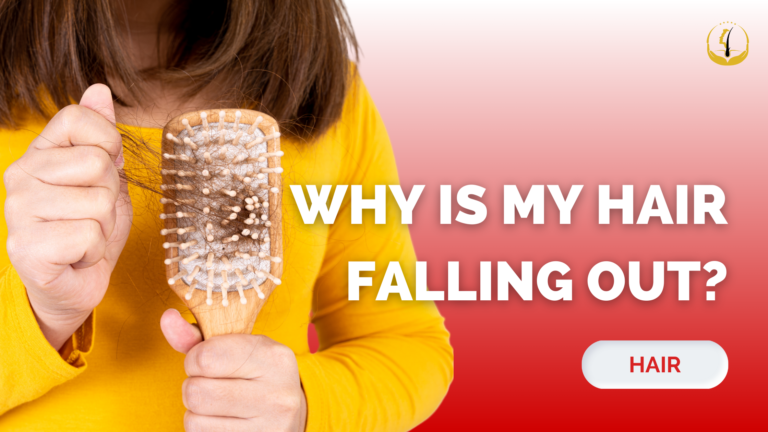Hair, often considered our crowning glory, becomes a source of concern and distress when it starts falling out. Medically known as alopecia, hair loss is a common issue affecting people of all ages and genders. In this comprehensive guide, we delve into the intricate reasons behind hair loss, exploring the various factors contributing to this phenomenon.
Genetics in Hair Fall
One of the foremost factors influencing hair loss is genetics. If hair thinning or baldness runs in your family, there’s a higher likelihood you may experience it too. Androgenetic alopecia, known as male-pattern baldness and female-pattern baldness, is a hereditary condition manifesting as early as the late teens or early 20s. Men experience a receding hairline and thinning crown, while women may notice diffuse thinning along the crown of the scalp.
Hormones in Hair Fall
Hormones play a pivotal role in hair growth and shedding. Imbalances, particularly in dihydrotestosterone (DHT), can lead to hair loss. DHT, a derivative of testosterone, miniaturizes hair follicles, resulting in shorter and finer hair growth cycles. Conditions like polycystic ovary syndrome (PCOS) in women and hormonal changes during pregnancy and menopause contribute to hair loss due to hormonal fluctuations.
Stress in Hair Fall
Significant stress or trauma can trigger telogen effluvium, a condition where numerous hair follicles enter the resting phase, causing noticeable shedding. While often temporary, managing stress and practicing self-care can mitigate its effects and promote regrowth once the underlying stressor is addressed.
Nutritional Deficiencies in Hair Fall
A well-balanced diet rich in vitamins, minerals, and proteins is crucial for overall health, including hair health. Nutritional deficiencies prioritize essential functions over hair growth, leading to thinning and shedding. Iron deficiency (anemia), inadequate biotin, zinc, and vitamin D intake can negatively impact hair health. A well-rounded diet and, if necessary, supplements recommended by a healthcare professional can foster healthy hair growth.
Medical Conditions and Hair Loss
Certain medical conditions contribute to hair loss. Autoimmune diseases like alopecia areata result in the immune system mistakenly attacking hair follicles, causing patchy hair loss. Scalp infections, thyroid disorders, lupus, and chronic illnesses disrupt the normal hair growth cycle. Consulting a healthcare provider is essential for diagnosing and managing underlying medical conditions contributing to hair loss.
Hairstyling Practices and Traction Alopecia
Excessive hairstyling involving tight hairstyles, extensions, or harsh chemicals can cause traction alopecia. Constant tension weakens hair follicles, leading to eventual loss. Avoiding tight hairstyles and allowing hair to rest, along with gentle care, prevents this form of hair loss.
Hair loss is a multifaceted issue influenced by genetics, hormones, lifestyle, and medical conditions. Understanding its causes is the initial step in effective management. For significant hair loss concerns, consulting a dermatologist or healthcare professional is advisable to determine the root cause and create a personalized treatment plan. While complete prevention may not be guaranteed, adopting a healthy lifestyle, managing stress, and practicing gentle hair care contribute to maintaining vibrant and healthy hair.
